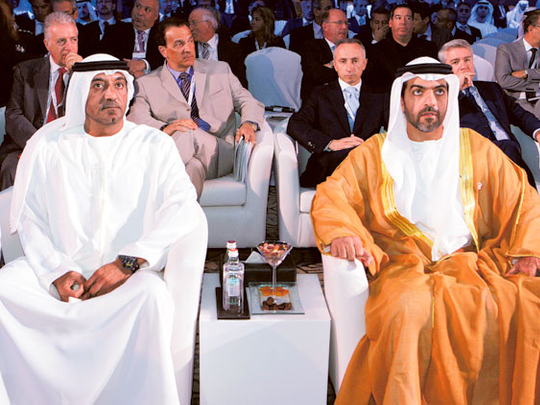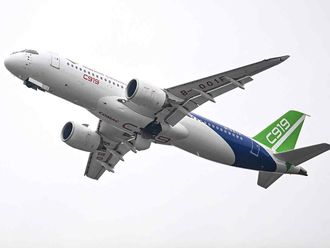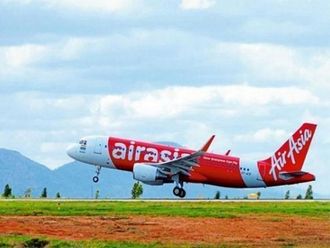
Abu Dhabi: The three major Gulf carriers — Etihad Airways, Emirates and Qatar Airways — are not a threat to each other and can survive the pressures of operating hubs in a small market, said Etihad’s top executive.
“What’s very clear for the roadmap we’ve created is that we can’t have the same model. We can’t have the duplication of the same overhead structures,” said James Hogan, Etihad Airways’ president and CEO.
Hogan was speaking at the Global Aerospace Summit in Abu Dhabi on Monday. He said the global market is big enough for the three airlines but said his airline would not grow by duplicating the business models of its neighbours. “We as a Gulf hub compete against the rest of the regions,” Hogan said.
The longevity of having three major global airlines operate within less than an hour’s flying time of each other — Abu Dhabi, Dubai and Doha — has often come been questioned. However, the three airlines continue to grow and expand their operations — albeit with different approaches.
Etihad Airways has entered into a number of equity stake partnerships with airlines in Europe, India, the Seychelles as well as with Virgin Australia.
Emirates, however, has looked to organic growth and has entered into a revenue-sharing codeshare agreement with Qantas.
Qatar Airways, on the other hand, is the only major Gulf carrier to have joined one of the three global airline alliances, oneworld.
“We’re an achievement of what a non-legacy airline can achieve,” Hogan, adding that “our model is how do we achieve competitive scale.”
Etihad has been able to use its equity stake partnership and its relationship with fellow Abu Dhabi-government-owned Mubdala Development Company to negotiate fleet orders.
At the Dubai Airshow, where Etihad announced fleet orders that included equity stake partner Air Serbia, Mubadala announced $5 billion (Dh18.37 billion) in contracts to supply parts to Airbus and Boeing.
Hogan said the ability to negotiate as a group ensures a great deal for the airline.
The Etihad chief also touched on the closeness of its relationship with its equity partners. He said that Etihad has worked with Air Berlin to reconfigure their business class, ensuring that whether passengers fly on Etihad or Air Berlin, they will still have the same experience.
Etihad has also retrained cabin crew staff at Air Serbia and Air Seychelles, Hogan said.
The airline is also looking to boost its equity stake partnerships.
It will reportedly soon move to lift its stake in Air Berlin from almost 30 per cent to 49.9 per cent and delist the German carrier. Etihad also recently lifted its stake in Ireland’s Aer Lingus to 4.1 per cent and is at present in due diligence talks to take a stake in Italy’s Alitalia.











